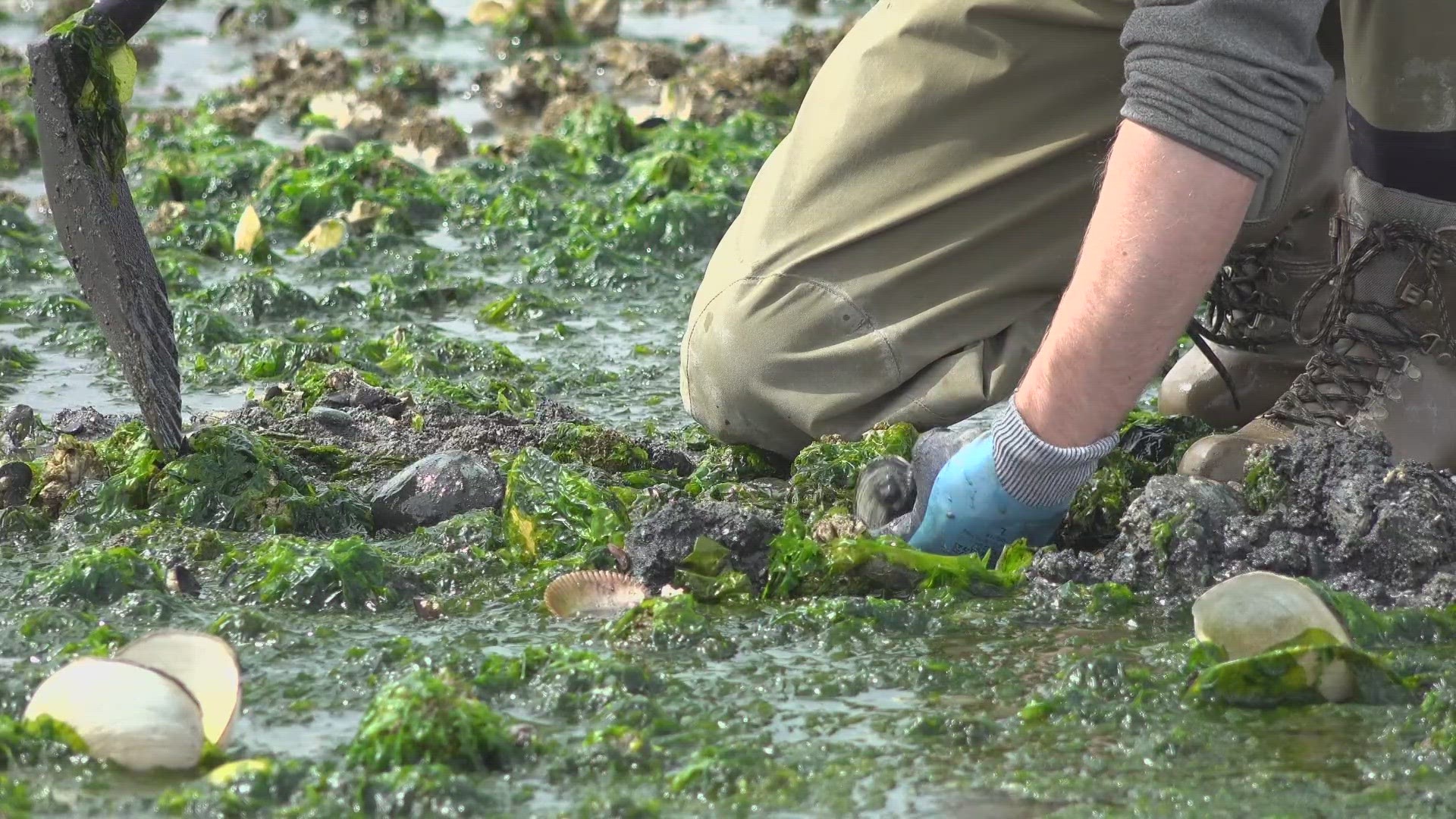WHIDBEY ISLAND STATION, Wash. — A team of investigators is studying what is causing transmissible cancers in shellfish on both the east and west coasts, including impacts to basket cockles, an important species for the Suquamish tribe and others that have traditionally counted it as a food source.
The Pacific Northwest Research Institute (PNRI) says a $3 million grant from the National Science Foundation will fund the project, which includes partners from PNRI, the Suquamish Tribe, Puget Sound Restoration Fund, Western Washington University and others.
"The main questions we're trying to answer with this research and with this grant is, how do these diseases spread through the wild?" PNRI Assistant Investigator Dr. Michael Metzger said. "We know that they are transmissible, but we don't know how they're getting from one beach to another, how it changes over time, and if there's seasonality to it, which can really be important for understanding how temperature is going to impact how these diseases transmit in the future."
Azure Boure, Traditional Food and Medicine Program coordinator for the Suquamish Tribe, says the tribe has been working to restore declining cockle populations and wanted to see if it could begin seeding beaches. During a testing process, they discovered a cancer in the cockles -- and began discussions that led to the investigation.
"This is not just a science experiment- this is a life experiment," Boure said. "This will affect our people, this will affect how we gather our traditional foods and how we look at those foods."
Boure says the goal of the research is to benefit generations down the line -- an objective Suquamish Tribal Council Member Luther "Jay" Mills, Jr. echoes. He says maintaining the sustainability of species in the Salish Sea is crucial. It provides accessible food, especially as prices rise.
"I teach the kids, our tribal students, traditional ways of harvesting some of the seafood, ways my great-grandmother taught me," Mills said. "I was fortunate enough to grow up in a time that I had that contact with my great uncles and great-grandmother and they taught me these things, so what I'm doing is passing it onto our youth."
He and Shellfish Program Manager Viviane Barry both hope the study will yield information about the mode and rate of transmission -- and he hopes awareness of the issue will drive more people to protect the Salish Sea as a whole. Boure also notes the adage "the tide is out, the table is set."
"We need to try to keep the Puget Sound, Salish sea, as clean as we can, and I think if everyone understood how important it is... do you want to pollute your food source? No. I don't. And I don't want to serve food that may have been polluted," Mills said.
PNRI says over the next five years, the team of researchers will collect and analyze samples to measure disease progression. Along with examining basket cockles on the west coast, they'll analyze soft-shell clams on the east coast.
"There's also issues that we don't know if they're spread through the natural flow of the water or if there's human intervention, and we can try to look at the patterns of how they're spreading from one population to another overtime to try to understand that, and then to try to understand as well, if there's any genetic basis to susceptibility to disease- if some populations are more susceptible or less susceptible than others," Dr. Metzger said.
Metzger says there is no indication the cancer can spread from shellfish to humans.
"Humans are totally safe," Metzger said. "You can eat clams, you can eat mussels, and there is no risk of any danger to human health for eating these."

